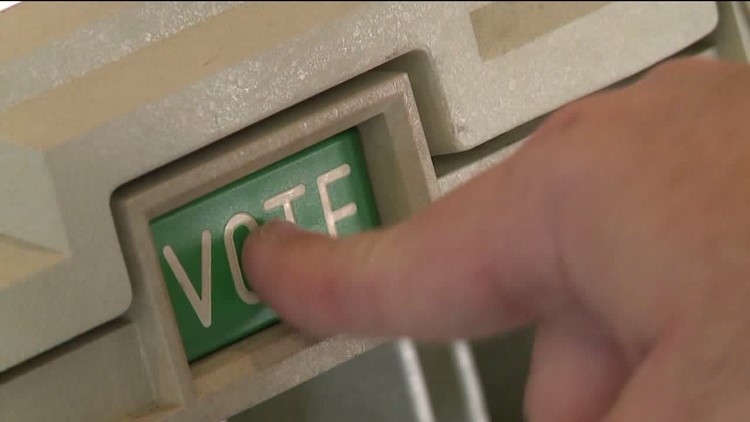HARRISBURG, Pa.--Governor Wolf announced Friday that he vetoed Senate Bill 48, a proposal that would have provided $90 million in state funding to counties for new voting machines in time for the 2020 election.
Wolf initially supported the measure, but vetoed the bill after Republicans added an amendment to eliminate straight-party ticket voting.
Opponents of the bill, argued the elimination of straight-party ticket voting could hurt voters who don't have time to learn about every candidate or would prefer a quicker option in the voting booth.
Pennsylvania is one of only seven states to have the straight-party ticket option.
The governor’s full veto message:
TO THE HONORABLE SENATE OF THE
COMMONWEALTH OF PENNSYLVANIA:Pursuant to Article IV, Section 15 of the Pennsylvania Constitution, I am returning herewith, without my approval, Senate Bill 48, Printer’s Number 1080.
Voting is what powers and sustains our democracy. I firmly believe that both I and the General Assembly have an obligation to strive to make voting more secure and more accessible to the citizens of this Commonwealth. Unfortunately, this legislation does not seek to increase voter participation in Pennsylvania. This failure is a missed opportunity to enact meaningful voting reforms.
This legislation, while purporting to secure elections, binds the hands of future administrations through a decertification procedure which weakens the ability of the commonwealth and counties to quickly respond to flaws that would require the decertification of large numbers of machines fewer than 180 days before an election. This is not acceptable as a legislative measure.
Finally, this bill eliminates straight party ballot voting. This policy choice removes a convenient voting option which is used by voters of any party affiliation. To implement such a change, particularly as new machines are being used for the first time, could lead to voter confusion and longer lines at the polls. These factors may lead to decreased voter participation, which, again, is in conflict with an inclusive approach to our system of elections. I sought amendatory language at various points to include voter-friendly reforms in this legislation, but those changes were not accepted.
For the reasons set forth above, I must withhold my signature from Senate Bill 48, Printer’s Number 1080.
Sincerely,
Tom Wolf
Governor
Senator Bob Mensch (R-Berks, Montgomery, Bucks) issued the following statement in response to the veto:
“When Governor Wolf vetoed Senate Bill 48, he vetoed funding for the voting machines that he himself demanded. He left county
taxpayers holding the bill. In addition, while the vast majority of states no longer allow straight-party voting, Governor Wolf’s veto keeps Pennsylvania tied to a partisan past. It’s clear that Washington, D.C. party operatives told the Governor that eliminating straight-party
voting would hurt his political party, and he acted accordingly. His veto is bad for voters and bad for taxpayers.”
Lancaster County Commissioner Josh Parsons, a republican, said many counties had been counting on the funding to help pay for the new voting machines.
“We all are in the process of getting rid of our voting machines and getting new ones. There’s a huge cost to that because of the governor’s mandate. The Pennsylvania House and Senate sent him a bill to help fund a portion of that and he vetoes it so that’s pretty frustrating and, frankly, surprising,” said Parsons.
He said they will cost around $3 million, with 20 percent of that cost coming from HAVA (Help America Vote Act) funds from the federal government.
The remaining costs, he said, will rest in the hands of county governments.
He said they're trying to finds options to remedy property tax increases.
“To order us to get rid of perfectly good voting machines without talking to us upfront and then provide no funding for it is really the worst case scenario,” said Parsons.
Parsons said the county is in a leasing payment option for the new voting machines.
That would have the county pay $595,257.72 each year through July 2024, unless the county purchases the machines, in full.
Governor Wolf told the state senate he asked for amendments to include what he calls "voter-friendly" reforms in the bill.
He also said he remains committed to voting machine funding.



